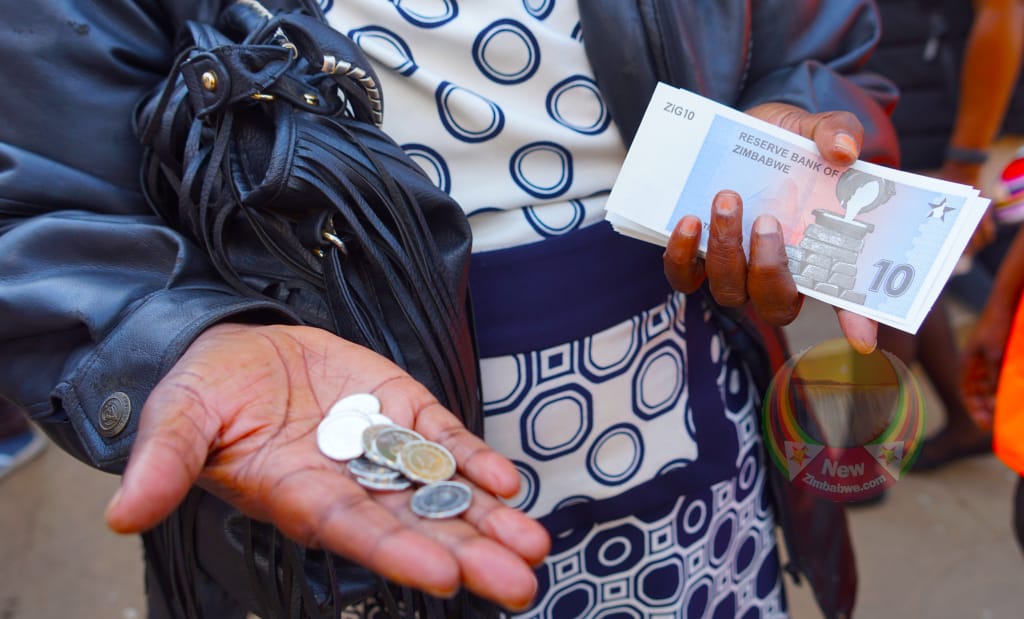Zimbabwe’s local currency, the ZiG, has seen a marked increase in public confidence, with a survey showing a 91 percent acceptance rate, up from 61 percent when it was introduced in April, according to Dr. John Mushayavanhu, the Governor of the Reserve Bank of Zimbabwe (RBZ).
In his 2024 Mid Term Monetary Policy Statement, Dr. Mushayavanhu highlighted that the stability of the currency has boosted confidence in the ZiG, prompting companies and individuals to keep their funds in banks with minimal fear of losing real value.
Dr. Mushayavanhu reported that the reserves backing the structured currency, largely composed of gold, rose significantly to US$375 million in June from US$285 million. This is in contrast to the total reserve money of the ZiG, which includes Non-Negotiable Certificates of Deposits worth US$139 million.
The RBZ’s Consumer Perception Survey, conducted online since mid-April 2024, indicated a steady rise in the acceptance of the ZiG. “The ZiG currency has been fully embraced by businesses and widely accepted by the public for both transactions and savings,” said Dr. Mushayavanhu.
Also read: Gray Homes Owners Face Fraud Charges After Allegedly Duping Vice President’s Wife of $1 Million
The survey results also showed a dramatic increase in the willingness of economic agents to be paid in ZiG, from 8 percent in April to around 80 percent in June.
He noted that public confidence in the ZiG has grown due to the increased stability and predictability of the currency. The RBZ is committed to maintaining this stability to achieve sustained low and stable inflation in the medium to long term.
The ZiG, backed by mineral commodities such as gold and foreign assets, replaced the hyperinflation-stricken Zimbabwean dollar and marked a major step towards economic stability and recovery. The ZiG/US$ exchange rate has been relatively stable, averaging between ZiG13.2 and ZiG13.8 per US$.
“The stable exchange rate has helped keep inflationary pressures in check, with inflation expectations remaining anchored,” Dr. Mushayavanhu explained. He added that the adoption of a refined foreign exchange market system based on the Willing-Buyer and Willing-Seller (WBWS) principle has greatly contributed to more stable price discovery.
To smooth out supply-demand mismatches, the RBZ has been intervening in the interbank market, using 50 percent of the 25 percent export surrender proceeds to facilitate interbank trading. Between April 8 and August 28, 2024, about US$190 million was traded through the interbank foreign exchange market.
Following an extensive education and awareness campaign on the security features and relevant information, the RBZ introduced ZiG cash into the market on April 30. The awareness campaign ensured that people across the country, including rural areas, were well-informed about the new currency.
ZiG notes and coins were released in denominations of ZiG 1, ZiG 2, ZiG 5, ZiG 10, and ZiG 20. Despite initial logistical challenges, the RBZ successfully distributed sufficient cash to banks to meet public demand. To further enhance cash access, the central bank introduced swipe facilities for ZiG at Homelink and cash kiosks at bus terminals, making coins easily accessible for commuters.
“The RBZ will continue to improve cash availability, particularly in rural areas, to ensure access for the financially excluded,” Dr. Mushayavanhu stated. The central bank has also observed that many people lack adequate electronic ZiG balances in their accounts, prompting the rollout of “cash kiosks” where they can exchange mobile wallet balances for ZiG cash.
To boost the circulation of ZiG, the RBZ plans to implement measures such as increasing the cash supply in line with demand while promoting a cashless economy. It also intends to issue more smaller ZiG denominations to address the challenge of making change, thereby preventing businesses from rounding up prices.
Additionally, the RBZ will work to streamline the distribution of ZiG, ensuring it reaches remote rural areas and informal markets to foster financial inclusion. Programs like Homelink Swipe for ZiG kiosks will be expanded to other regions to encourage broader use of the currency.
For comments, Feedback and Opinions do get in touch with our editor on WhatsApp: +44 7949 297606 or Email Us at editor@zimetro.co.zw

For comments, Feedback and Opinions do get in touch with our editor on WhatsApp: +44 7949 297606.
